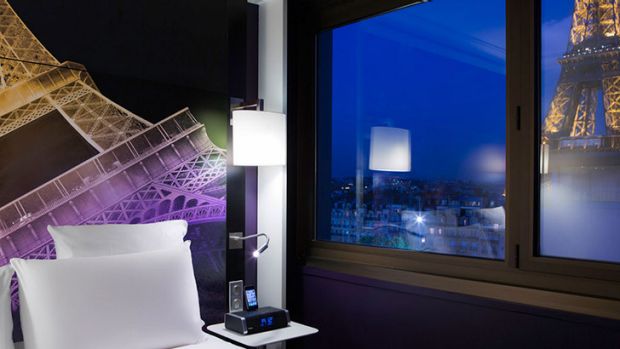The Department of Foreign Affairs and Trade spent an estimated $215,000 or more sending nearly two dozen senior bureaucrats from Canberra to Paris to attend an inhouse talkfest about ways to save money.
Fairfax Media can reveal the two day junket in September included business class return travel for all 23 DFAT officers.
More News Videos
DFAT spends up on Paris meeting
Sending 23 DFAT officers to Paris to attend a meeting on saving money cost the taxpayer an estimated $215,000. Vision: Today Show, Channel Nine
They included John Philp, Australia's former ambassador to Afghanistan and current first assistant secretary of the consular and crisis management division and John Fisher, first assistant secretary of DFAT's corporate management division.
But the entourage, which was hosted for the two day conference by Australia's ambassador to France, Stephen Brady, included a departmental psychologist, a conduct and ethics manager, and a health and safety officer, according to a list of attendees obtained by Fairfax Media.

According to the Qantas website, the cheapest business class "saver" ticket to Paris costs $3800 one-way, indicating the group of 23 cost at least $175,000 in airfares alone for the 48-hour jaunt.
The group stayed at the four-star Mercure Paris Centre Eiffel Tower Hotel where standard rooms for mid-week business travellers start at $530 a night, according to booking websites.
DFAT would not comment on the total cost of flights, hotels and meals but using the scenario of the cheapest business class fares on offer, three nights at the Mercure and a $150 daily meal allowance, a conservative estimate of the trip's cost would be $215,000. That figure does not include the as yet unknown cost of getting more than two dozen Europe-based diplomatic staff to Paris.
The conference, hosted at the Australian embassy just near the Eiffel Tower, was held to discuss a project known internally as "Redesign" and aimed at "streamlining work and improving efficiencies at posts in Europe", according to DFAT.

According to a source familiar with the September 7 to 9 conference, some Australian-based participants wondered why the conference could not have been held via a cheaper and perhaps more agile fashion like video conferencing.
At a senate estimates hearing on Thursday, DFAT officials confirmed the details of the trip and defended their decision not to fly the contingent to Paris.

DFAT secretary Frances Adamson said the foreign service had held corporate management meetings for three decades and hosted about four each year. She insisted the security briefing from the Canberra-based head of security was critical for "small posts operating under difficult circumstances"
Mr Fisher, who fronted estimates, said he had used video conferencing in the past.
"Elements of the conference we can deliver by Skype, by video conferencing. Elements we choose to do otherwise, elements we choose to provide training sometimes in person," he said.
"Paris was chosen for two reasons. One in particular, because it's a transport hub. So if you're bringing people from the Europe region ... somewhere in the centre of Europe makes sense."
Labor senator Penny Wong responded: "It's not known as a cheap city?
"No senator but if you're factoring in transport costs, that counts. Secondly, we had a free venue," Mr Fisher responded.
Foreign Minister Julie Bishop was not required to approve the trip, DFAT confirmed on Thursday.
In Question Time on Wednesday Treasurer Scott Morrison lambasted Labor's profligate spending in government, saying only the Turnbull government had a "plan to continue to reduce and get expenditure under control".
A DFAT spokeswoman said Europe-based staff outnumbered Australian-based staff at the Paris conference.
"As two thirds of attendees were Europe-based staff, hosting the conference in Paris cost less than it would have cost to host the conference in Australia," she said.
"The conference was focused on streamlining work and improving efficiencies at posts in Europe through training and briefing on financial management, human resources, consular and passport services, security (elevated levels of terrorism), procurement governance, staff welfare, audit and risk, health and safety, legal risk, IT and property. Security was also prominent, given the elevated levels of terrorism, as well as work health and safety issues."
She confirmed attendees travelled business class.
Ms Bishop has strongly backed the implementation of fresh ideas like project Redesign, which will use a "hub and spoke" system to improve efficiencies between larger and smaller diplomatic posts in Europe.
Last year she launched the DFAT "ideas challenge", which stemmed from an earlier aid project known as the 'InnovationXchange' – a $140 million ideas hub that Ms Bishop once described as a "gorgeous little funky, hipster, Googly, Facebooky-type place".
The project drew fire at a Senate estimates hearing after DFAT revealed that $1700 had been spent on three bean bags.









76 comments
Comment are now closed